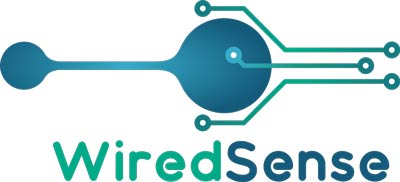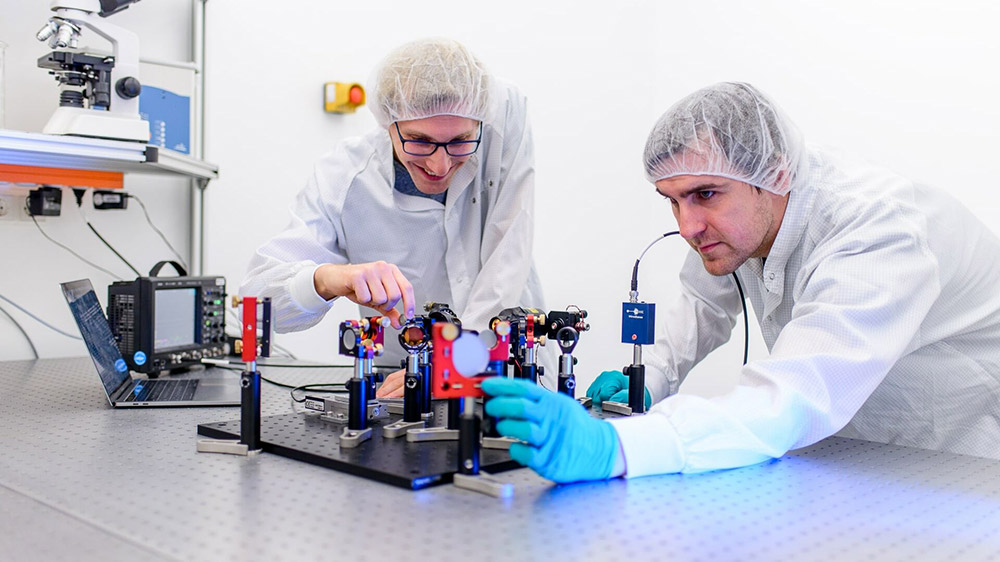WiredSense

Business idea: Radiation detector “MPY-01
Industry: Physics
Year founded: 2018
The founders develop an optimised radiation detector for use in laboratories
Category
WiredSense: With radiation detectors from research to industry
Thomas Gebert and Matthias Budden are actually scientists – but since 2018 they have also been founders. Their company WiredSense was founded parallel to their joint work at the Max Planck Institute for Structure and Dynamics of Matter.

For the highly sensitive characterisation of infrared and terahertz radiation, a very expensive and specialised measuring device would actually have had to be purchased, which awakened the ambition of the two: it had to be better, more compact, easier to handle and also significantly cheaper. This was reason enough to start the development of an optimised radiation detector for use in research laboratories. Shortly after the completion of the first prototypes, enquiries from scientists from other working groups already came in. It took another year until the product was ready for the market, which is currently also being sold internationally. The customers are mainly universities and research institutions. But that’s not all: for their latest project, they are now receiving InnoRampUp funding and thus the opportunity to run WiredSense on more than just a part-time basis.
Many successful companies have their origins in a garage. This is also true for WiredSense. Because even if the idea for the radiation detector came while they were working together on the research campus in Bahrenfeld, it took some additional home work. “Thomas milled the first prototypes at his place,” Matthias explains, “and I soldered the electronics at home.”
The two met almost six years ago when they started working at the Max Planck Institute almost simultaneously: Thomas as a beamline scientist and Matthias as a PhD student in physics. Starting a company on the side was not an obvious idea at the time. For their research on organic superconductors, they worked together on powerful light sources in the infrared and terahertz range. It was important to be able to make precise measurements in this spectral range. However, there were only very expensive and difficult-to-handle measuring instruments that were sensitive enough for their application. The two benefited from their knowledge of pyroelectric materials, which are excellently suited for the broadband detection of radiation. On this basis, they started to build the radiation detector “MPY-01”, optimised for research – their first product. “Unlike existing radiation detectors, our version is highly sensitive, low-noise and enables the detection of electromagnetic radiation over a very broad wavelength range,” Matthias explains, “In addition, it is compact, battery-powered and can be integrated very easily into existing optical setups.” Added to this: Compared to sensors with a different measuring principle but similar sensitivity, it is unbeatably cheap and easier to handle.
In research, there are many inventions that never make it “out there”. It was different for Thomas and Matthias. “Colleagues wanted to use our detector too. So we said, ‘Come on, let’s find a way to make that possible’,” Matthias recounts. What was also crucial: inventions like these initially belong to the employer under the Employee Invention Act (ArbNErfG), but they can be released. Thomas and Matthias received this approval. Now nothing stood in the way of their product and their part-time start-up. With their own online shop and due to the small market in the research area, the project was also feasible on the side and even covered the development costs of two further detector variants. Time efficiency is a critical factor in a sideline start-up. That is why the two develop and test everything themselves, but then have the components manufactured by external partners. Finally, they assemble and pack everything where it belongs for real founders: In the garage. From there, the detectors are shipped to China, Korea or the USA. “I wouldn’t have thought it possible,” says Thomas, looking back. “The support of the ‘DESY Start-up Office‘ and ‘beyourpilot’ (Editor’s note: “beyourpilot” has been operating under the “Startup Port” brand since July 2023) were a great help. Through them, we made contacts, got tips and were able to simplify both the founding and the operation of the company considerably.”
In the future, WiredSense will shift its focus somewhat. The office is already located in the InnoVillage on the DESY campus, and the founders have received a commitment for InnoRampUp funding from IFB Hamburg for their latest project. This gives them financial breathing space and time for about a year. “You can still order the detectors,” Matthias explains, “but the new project in the field of material analysis will be a few sizes bigger and build on our development.” How fortunate that he recently completed his PhD, because Matthias will work 100% for WiredSense in 2021, Thomas 50%. In addition, there is a small team that is still expected to grow – as long as the new project develops well. “We are happy about the direct connection to research, both spatially and through Thomas’ half-time position at the Max Planck Institute, because feedback is enormously important for us to stay on the cutting edge of technology,” says Matthias, who wants to remain both: Scientist and founder: “In any case, our research idea will not disappear, because development work never stops.






